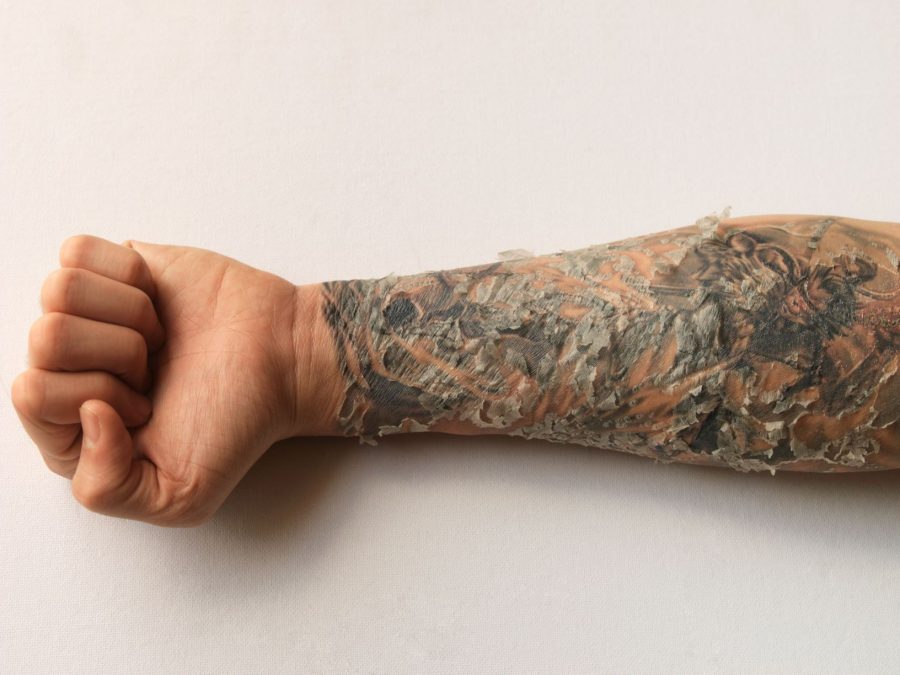
Okay, let’s talk hand tattoos gone wrong.
Seriously, how many times have you stared at that unfortunate ink, wondering, "Ugh, how long should I wait before covering a bad hand tattoo?"
I get it.
It’s staring you right in the face, every single day.
It’s not like a back piece you can hide.
You’re probably dealing with a mix of regret and impatience.
Trust me, I’ve seen it all.
So, let’s get down to brass tacks.
How long exactly do you need to wait?
And what factors play a role?
Let’s dive in.
The Burning Question: How Long Before a Cover-Up?
The short answer?
At least 6-8 weeks, ideally 3 months.
But, hold up.
There’s more to it than just a calendar.
Think of it like this: your skin is a canvas that’s been through a battle.
It needs time to heal and recover before you throw more ink at it.
Why the Wait is Crucial
Seriously, rushing this is a bad idea.
Here’s why:
- Full Healing: Your skin needs to completely heal from the initial tattoo. Think about it, needles poked you thousands of times. That’s trauma.
- Ink Settling: The ink needs to fully settle into your skin. Colors can shift and change during the healing process. You need to see the final result before covering it.
- Scar Tissue: Scar tissue can form, especially if the original tattoo was poorly done. Covering it up before scar tissue has softened will only make things worse.
- Color Fading: Some fading is normal. Waiting allows you and your artist to better assess the original tattoo’s ink saturation for optimal cover-up design.
Think of my buddy, Mark.
He got a tribal armband that looked like it was drawn with a Sharpie.
He rushed the cover-up after only a month.
The new tattoo ended up looking muddy and uneven.
He had to get another cover-up!
Learn from Mark’s mistake.
Factors That Influence Healing Time
Not everyone heals at the same rate.
Here are some things that can affect how long you need to wait:
- Size and Complexity of the Original Tattoo: A small, simple tattoo will heal faster than a large, intricate one.
- Placement: Hand tattoos tend to heal slower than tattoos on less-used areas of the body. All that movement doesn’t help.
- Your Health: Your overall health, immune system, and lifestyle (smoking, diet, etc.) play a big role.
- Aftercare: Proper aftercare is essential for quick and healthy healing. Follow your artist’s instructions religiously.
- Skin Type: Some skin types heal faster than others.
Signs Your Tattoo is Ready for a Cover-Up
How do you know it’s time?
Look for these signs:
- No More Scabbing: All scabbing should be gone completely.
- No Redness or Inflammation: The area should be free of any redness, swelling, or irritation.
- Smooth Skin Texture: The skin should feel smooth and not bumpy or raised.
- Color Stabilization: The colors should have settled and stabilized.
If you’re unsure, ask your tattoo artist!
They can assess your skin and give you the best advice.
Choosing the Right Cover-Up Artist
This is crucial.
Don’t go back to the same artist who messed up the first one!
Find an artist who specializes in cover-ups.
Look at their portfolio.
Make sure they have experience with similar situations.
Communication is key.
Discuss your ideas and concerns openly.
A good artist will be honest about what’s possible and what’s not.
Cover-Up Design Considerations
Covering up a tattoo is an art in itself.
Here are some things to keep in mind:
- Bigger is Often Better: A larger design can more effectively conceal the original tattoo.
- Darker Colors: Darker colors like black, navy blue, and deep purple are better at covering up existing ink.
- Strategic Placement: Consider the placement of the original tattoo and how the new design can best camouflage it.
- Busy Designs: Intricate, detailed designs can distract the eye from the original tattoo.
FAQ: Common Cover-Up Questions
- Can I get laser tattoo removal instead? Laser removal is an option, but it can be expensive and time-consuming. It’s a good choice if you want to completely erase the tattoo, but it might not be necessary for a cover-up.
- Will the cover-up hurt more? It might be slightly more painful, as the artist is working over already tattooed skin.
- How much will a cover-up cost? Cover-ups are generally more expensive than regular tattoos due to the extra work involved.
- What if I hate the cover-up too? This is why choosing the right artist and design is so important! Do your research and communicate clearly.
Final Thoughts
Patience is a virtue, especially when it comes to covering up a bad hand tattoo.
Give your skin the time it needs to heal, choose the right artist, and plan your design carefully.
Trust me, it’s worth the wait to get a cover-up you’ll love.
Remember, how long should I wait before covering a bad hand tattoo? At least 6-8 weeks, but ideally longer for best results.
Leave a Reply